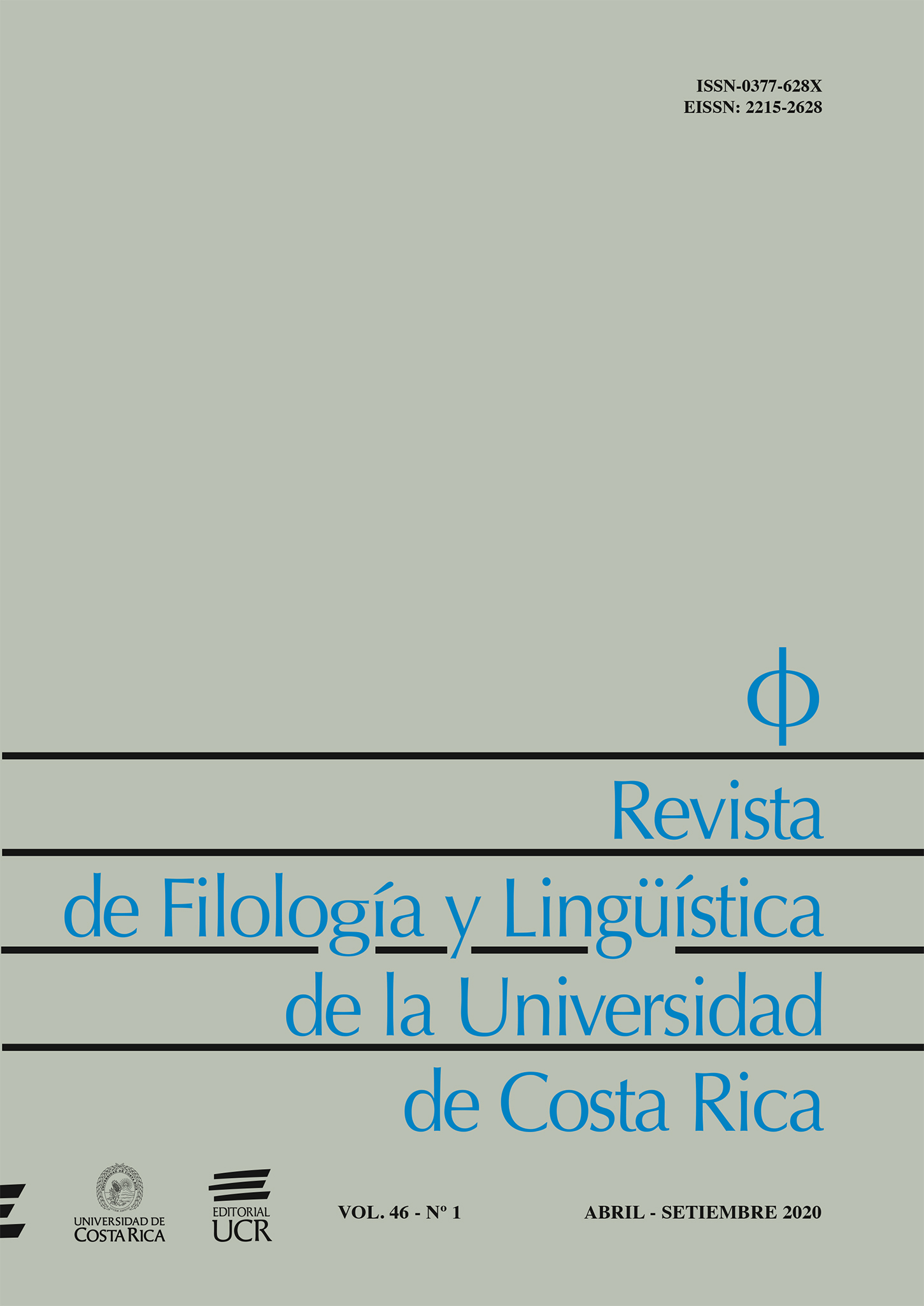Abstract
The paper proposes an analysis of the vocabulary referred to the notion of “heroism” both in ancient Greek and classical Sanskrit. It stablishes three objectives: (1) to analyze the lexical family derived from the seme ἡρω- and the semantic field of heroism in Greek, (2) to analyze the lexical family derived from the seme वीर् (vīr-) and the semantic field of heroism in Sanskrit, and (3) to contrast the notions of heroism. Based on the dictionaries by Bailly (2000) and Monier-Williams (2008), it elaborates two corpora for the study. In conclusion, it states a Greek notion of heroism as “(in)mortality” and an Indian notion of heroism as “liberation”.
References
Artigas, M. (1998). Propuestas metodológicas para el estudio del léxico. Estudios Románicos, 10, 9-32.
Bailly, A. (2000). Diccionaire grec-français. Paris: Hachette.
Berenguer, J. (2002). Gramática griega. Barcelona: Bosch.
Böhtlingk, O. y Roth, R. (1855). Grosses Petersburger Wörterbuch. Sankt Petesburg: Russlands.
Das, G. (2008). Foreword. Mahābhārata. Book Five. Preparations for War. Volume One (K. Garbutt, trad.) (pp. xv-xxv). New York: The Clay Sanskrit Library.
Dodds, E. (1986). Los griegos y lo irracional. Madrid: Alianza.
Jaeger, W. (2004). Paideia. México: Fondo de Cultura Económica.
Larrañaga, H. (1991-92). Aquiles, héroe de héroes. Revista de Estudios Clásicos, 22, 65-107.
Lasso de la Vega, J. (1963). Ética homérica. En L. Gil (Ed.), Introducción a Homero (pp. 289-316). Madrid: Ediciones Guadarrama.
Lesky, A. (1989). Historia de la literatura griega. Madrid: Gredos.
Liddell, H. y Scott, R. (1843). A Greek English Lexicon. Oxford: University Press. Recuperado de http://www.perseus.tufts.edu
Monier-Williams, M. (2008). Sanskrit-English Dictionary. New Delhi: Munshiram Manoharlal.
Montes, M. (2006). El miedo al desorden: Estrategias de recuperación del equilibrio social en el mito iliádico. Gerión, 24(1), 119-141.
Nagy, G. (1999). The Best of the Achaeans. Maryland: The Johns Hopkins University Press.
Real Academia Española (RAE). (2018). Diccionario de la Lengua Española. Recuperado de http://www.rae.es/
Segura, S. (2003). Nuevo diccionario etimológico latín-español y de las voces derivadas. Bilbao: Universidad de Deusto.
Watkins, C. (2000). The American Heritage Dictionary of Indo-European Roots. Boston-New York: Houghton Mifflin Company.
West, M. (2007). Indo-European Poetry and Myth. Oxford: Oxford University Press.
Zimmer, H. (1965). Filosofías de la India. Buenos Aires: Editorial Universitaria de Buenos Aires.

